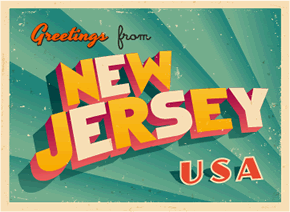NJ Bill Seeks to Curb Payment Processing Online Gambling Woes
 State Senator Jim Whelan wants to improve the success rates of payment processing options for New Jersey’s online gambling industry; an industry that could certainly use some improving as it has certainly experienced its fair share of payment processing issues over its first six months.
State Senator Jim Whelan wants to improve the success rates of payment processing options for New Jersey’s online gambling industry; an industry that could certainly use some improving as it has certainly experienced its fair share of payment processing issues over its first six months.
Visa deposits are currently being rejected over 50% of the time, while MasterCard customers are faring significantly better, but still at a far from ideal number, with about 1/4 of depositors finding their transaction nullified by their issuing bank.
Senator Whelan envisions a scenario where by licensing online payment processors will alleviate some of this pressure.
Will it work? Is the measure just the latest band aid or, even worse, a band aid being applied to a broken bone?
Whelan’s bill solves a problem that doesn’t exist
The biggest problem with Whelan’s bill is that it attempts to solve a problem that doesn’t exist.
Online payment processors (Neteller and Skrill) have extremely high success rates already, and they are already highly regulated and licensed in New Jersey.
The real problem is many potential online customers do not want to deal with the hassle of creating an eWallet account through Neteller or Skrill just to play online poker. As Ultimate Gaming’s Tom Breitling has stated, “Every extra click you ask someone to make costs you 10% of your customers.”
Asking players to create an eWallet simply to play online poker is multiple extra clicks.
Regulated online gambling was supposed to make things easier not more difficult.
The buzz around the industry was that people were once again going to be able to enter their credit card number and be playing within minutes, instead they are finding their credit cards rejected at an alarming rate (which also undermines the perceived legitimacy of the industry) and then being prompted to open an eWallet account as a workaround.
The only real fix is to get credit cards and banks on board with regulated online gambling, and Whelan’s bill simply doesn’t do this.
To make this a reality either the consumers (the players) are going to have cause a stink with their banking institutions or as more and more states legalize and regulate online gambling the financial institution holdouts may move forward.
One possible explanation
Perhaps the Whelan bill (which requires payment processors to apply for the more rigorous Casino Service Industry Enterprise license as opposed to their current Ancillary Casino Service Industry Enterprise license) is meant to demonstrate the legitimacy and oversight of the industry to the credit card companies and banks who are still holding out on processing online gambling transactions in regulated markets?
A CSIE license is the highest level of licensure in the online gambling industry, and is currently only required of Operators (AC casinos like the Borgata or Golden Nugget) and their online providers like Betfair, bwin.party, and Gamesys.
But if this is the case, aren’t there better ways to raise awareness, and to demonstrate the authenticity of the industry?
Whelan’s bill seems more like it occurred during an 11th hour meeting to pitch ideas than a well thought out plan to solve the payment processing issues the state is facing.
Unintended consequences
Forcing payment processors which are already heavily regulated as financial institutions in the US, and are already required to apply for an ACSIE license in New Jersey, to apply for and pay for the extremely costly vetting process of a CSIE license could force some to not even bother with the online gambling industry in the US, which is a relatively small industry at this point.
Not only does it cost more to apply for and receive the CSIE license, but the process is far more invasive. If an ACSIE license is similar to going in for a standard yearly physical, the CSIE process adds on an MRI, CAT scan, x-rays, and a rectal exam.
Or worse, it could force higher fees on online gambling transactions, as companies pass off the cost of the licensing process to their customers.
Helpful rulings from New Jersey and Arizona
One of the aspects of gambling transactions banks are concerned about is potential chargebacks (even though chargebacks for online gambling transactions have been far lower than for standard eCommerce in the regulated markets) but two recent stories might change the minds of the decision makers at certain financial institutions, and help alleviate their fears of customers using the “gambling” defense to get out of paying their accumulated bills:
State Court of Appeals Rejects Online Gambling Appeal
New Jersey Online Gambler Claims Identity Was Stolen to Avoid Rising Debt
It’s these types of stories that will demonstrate to holdout banks the strict oversight of online gambling in regulated markets, and even in Arizona where online gambling is not regulated, the courts ruled against a man trying to get out of paying his $800,000 in online gambling debts.






